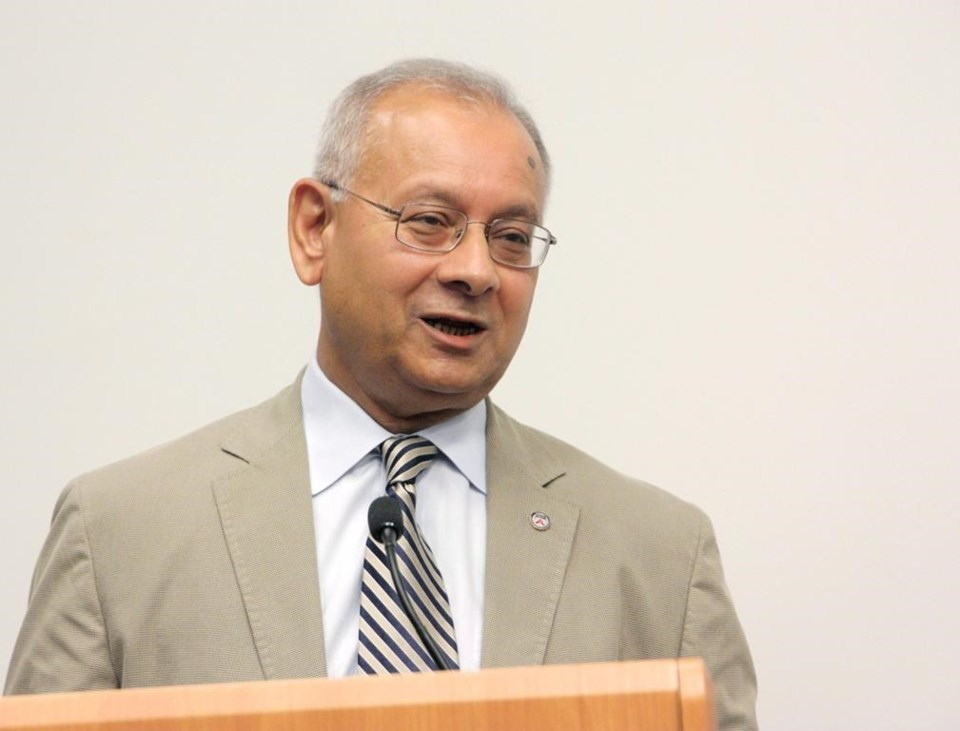An independent expert panel is calling for more Indigenous representation in top positions of the Thunder Bay Police Service and the board overseeing it, in order to help achieve longstanding recommended policing reforms.
The panel appointed by the Thunder Bay Police Services Board in March to assess the culture of both organizations presented an interim report Tuesday, after consultations with community and police service members.
That report said urgent measures are needed in the areas of chief selection, police board appointments and labour relations, and suggested the next chief should be Indigenous or another person of colour with police leadership experience.
With the northern city's police service searching for a new chief and the board due for a change-over this fall, the chair of the expert panel said it's an opportune time to get the right leadership in place to oversee steps to rebuilding trust, particularly among the region's Indigenous residents.
"It is an opportunity to put the right people in place and to provide them with the kind of resources they need to do their work," Alok Mukherjee said from Thunder Bay, where he presented the report to the police services board.
Mukherjee, former chair of the Toronto Police Services Board, said it's "critical" to have the right chief in place to move forward and ensure outstanding recommendations from past reports outlining evidence of systemic racism and lack of trust in the police force can be implemented.
"It's an opportunity to do the right thing."
The report is the latest in a series of reviews that scrutinized policing in the northern Ontario city, including some that have found evidence of systemic racism in how it handles cases involving Indigenous people. Indigenous leaders have called for the service to be disbanded altogether because of the erosion of trust.
It also follows the recent suspension of chief of police Sylvie Hauth, as well as human rights complaints and low morale among members of the police force who also have high rates of PTSD, Mukherjee said.
A final report is expected early next year that the panel says will focus on "a roadmap for change" to rebuild trust between the city, police board and community.
But in the meantime, the panel said appointing a new police chief and re-constituting the board are areas that need immediate attention to ensure the proper leadership is in place to oversee those changes.
It recommended the board expand its membership to seven from five, and require that at least three of the members are Indigenous, including at least one person from Fort William First Nation, a community that's adjacent to Thunder Bay.
It also advised the selection process for the chief and police board members should involve outreach to candidates from First Nations and other diverse backgrounds, and should take input from Indigenous community leaders.
The report outlined priority characteristics for the next chief of police that include an understanding of the city and its status as a hub for the region, an understanding of First Nations governments, a commitment to a trauma-informed work culture and an understanding of poverty, racism, homelessness and mental health.
There is also call to revise the police board appointment process and require mandatory training for members about their roles and responsibilities. It said the chair of the board should be a citizen member to establish its independence from the city.
Labour relations also stood out to the panel as a key area in need of improvement, the report said. It called for a swift commitment to trauma-informed labour relations and training for all senior officers and managers.
"This training be comprised of two parts: trauma as it affects the mental health and well-being of members of the police service and trauma as it affects the lives and realities of Indigenous members of the community," the report said.
After managers are trained on the practice, the report said steps should be taken to provide such training to all uniformed officers.
During consultations, Mukherjee said the breakdown of trust was a recurring theme, as was burnout among members of the police service.
The report also noted the fact that it is not the first to call for changes to policing in Thunder Bay. A summary described the lengthy series of previous reports on issues with racism and trust as "more scrutiny than any police board or police service has received in Ontario, if not the country."
The panel is now turning its attention to a final report.
Mukherjee said he was pleased with the response when he presented the interim report, though it "remains to be seen" if its recommendations will be implemented while others have not been. He said the leadership changes, resources and training are "critical ingredients" to finally seeing change.
"The reason that we are urging the decision makers to put the right people in place is that will create the best possible condition for changes to happen," he said.
"In effect, Thunder Bay needs to get away from same old, same old."
This report by The Canadian Press was first published Sept. 20, 2022.
Holly McKenzie-Sutter, The Canadian Press

